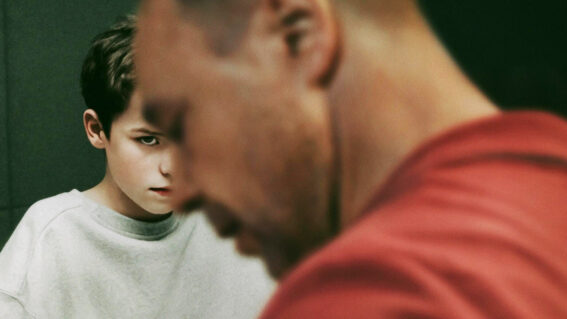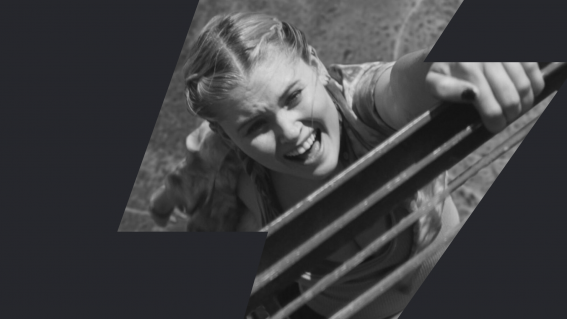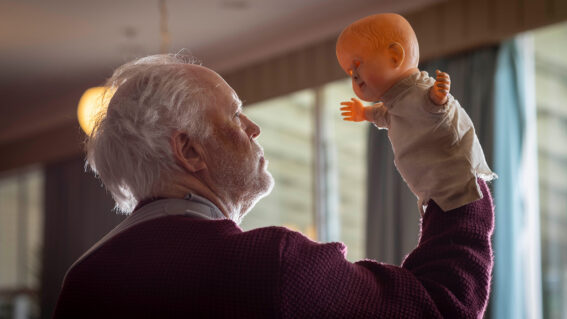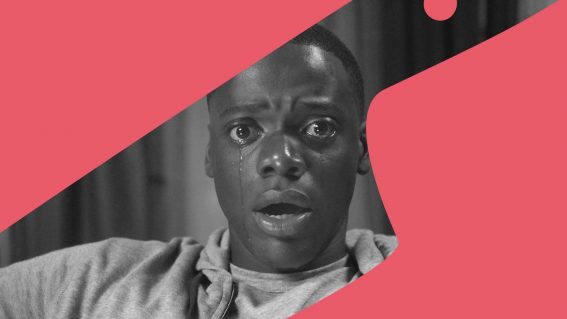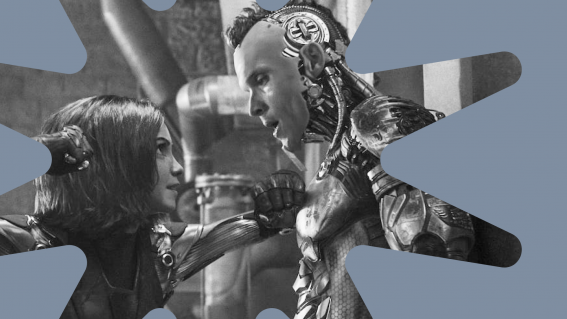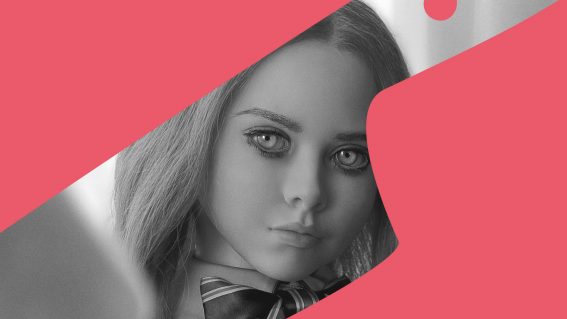“It is meant to be a reckoning” say directors of COVID-19 doco Totally Under Control
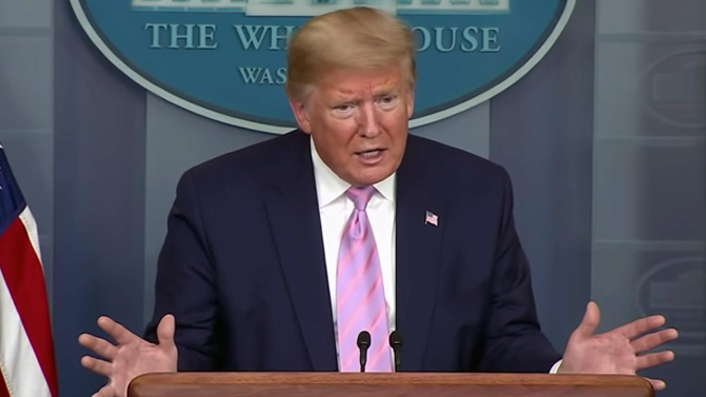
The utter failure of the US government on COVID-19 is the subject of new documentary Totally Under Control. Take it from us, it’s the COVID-19 doco you don’t need to feel bad about recommending to friends and family or posting on Facebook, since no tinfoil hat is required. Steve Newall spoke with the film’s directors.
Master documentarian Alex Gibney (Going Clear, Citizen K etc.) shares directing credits with Ophelia Harutyunyan and Suzanne Hillinger on Totally Under Control. Their doco, made in secret over a five-month period, details the disastrous US Government response to the COVID-19 pandemic. Setting out a clear timeline of the pandemic and government failures, Totally Under Control interviews those on various frontlines—from emergency room doctors to immunologists, public health officials and those procuring and manufacturing PPE—to set the record straight on recent history, and make a damning case against the US President and his political appointees on the eve of the presidential election.
Totally Under Control is available on Apple TV/Apple iTunes now, and will be streaming on DocPlay from Monday October 19.
Steve Newall spoke to the film’s three directors about documenting the deadly pandemic as they lived through it and, yes, Donald Trump (whose lie provides their documentary’s title).
This interview has been edited for length and clarity.
FLICKS: Totally Under Control is a concise, personal, terrifying, compelling, and factual piece that is like watching a horror movie evolve in reality. How has the process of documenting this been as you lived inside it? It seems like a very unique situation.
SUZANNE HILLINGER: At times was completely overwhelming. I think with trying to stay healthy, protect loved ones, figure out how to work from home, deal with all of the incoming news, and also tell a story about that, there was a lot to figure out. But early on, in the spring, we started realising there were a lot of mixed messages and miscommunication coming from our government, and we felt like we had a responsibility to try to get the story right. And I think that purpose drove us, and I think experiencing it while we were working on this film gave us a constant gut check of what was important, what were we having sort of a gut response to.
OPHELIA HARUTYUNYAN: And our team is mostly New York-based, so we were living through New York’s hardest days. We could see the toll that it had taken on New York, and death numbers were rising. There were sirens everywhere and we could hear the sirens and the nothingness. So we all came together with a very unified goal of just telling the truth, getting this out, and making sure that people know what happened. So that was kind of driving us to being glued to our desks in our small apartments in New York and working hard to get the story out.
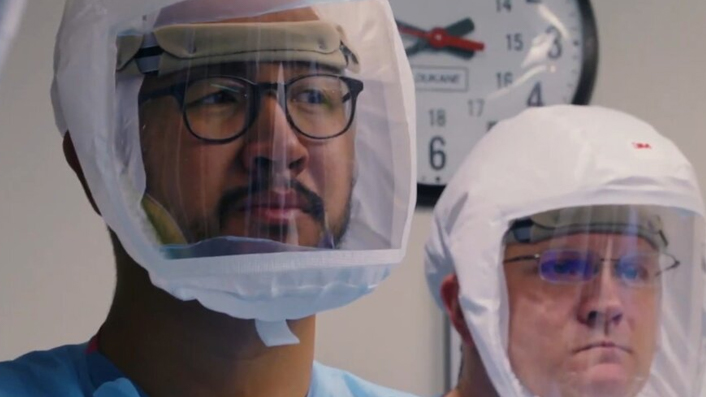
FLICKS: From a viewer’s perspective, it’s the same rigour that’s applied to your other work. But it is interesting to think about applying that skill that you’ve developed on previous films to something that’s happening in real time. Did it make you feel like you were particularly well equipped to tell this story?
ALEX GIBNEY: I don’t know. I mean, the proof is in the pudding. But I think the decision that the three of us made when we when we embarked on this was that we did want it out right about now in order to have an impact that was relevant to this upcoming election. In so doing, we thought, well, if we focus on the early days of the pandemic, then particularly in this fire hose of events and scandal that we’re living through, that would seem like ages ago. We would be in it, yes, we were in COVID. But by focusing on the early days, it kind of gave a historical perspective that, I think, was easier to reckon with than just feeling like we’re having to recap the news every day. It was that early story that we were really focused on, and that was not dissimilar from some of the other projects I’ve done, where you look at the recent past, and you try to understand it in a new way.
FLICKS: We’ve all been trained to work with this really different timeframe with the way we’ve consumed information over the past 12 months, whether it’s COVID or anything else Trump-related. It’s changed things for the viewer. What’s it done for you as filmmakers?
SUZANNE HILLINGER: In terms of watching press conferences, other archival footage of him speaking or tweets we just constantly had to to figure out what stood as evidence of his action—or inaction—versus what was just noise. We tried to set aside stuff that was just noise so we could use his words to advance a true narrative.

FLICKS: There’s a moment in the film when it starts to hone in on what’s happening at the upper echelons of the federal government. I found myself exclaiming, “It’s turned into a fucking charging document!” You mentioned the timing, is this a really important thing for you—to attribute these terribly tragic failures to the actions of individuals and what you hope might happen as a consequence.
ALEX GIBNEY: Well, it is meant to be a reckoning. And it is meant to be a look at the competence or incompetence of the administration and to hold people to account in the most basic way. Elections do matter, and that’s why we wanted this to happen before the election. And I think that there’s no issue in this country that’s more broadly relevant to everybody’s lives than COVID. It affects everybody. And so in that sense, to have a reckoning on how badly this administration handled that issue was really important to do.
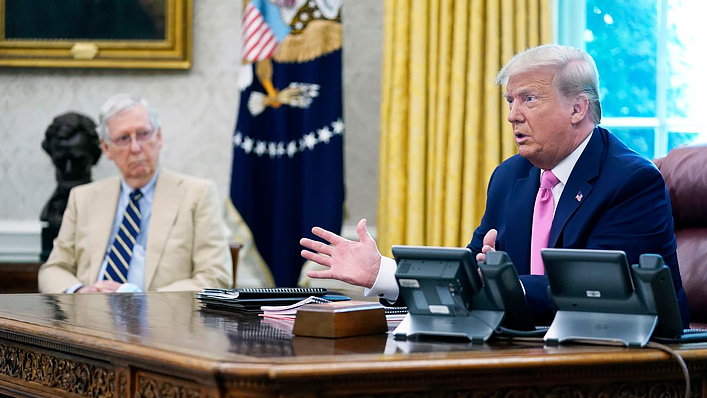
FLICKS: You’re probably aware that our situation with COVID in New Zealand is very fortunate. But we’re not immune from anti-science opinions and, strangely, pro-Trump-ism that you must have to deal with domestically on a daily basis. What do you think propels that sort of contagion or fanaticism even outside the borders of the United States?
ALEX GIBNEY: Domestically, yes. We dealt with it in South Korea too [Totally Under Control contrasts that country’s COVID-19 response with the US]. But it’s a broadly human problem, and I’ve dealt with in a number of the films I’ve done in the past. I did a film about the Church of Scientology called Going Clear, and the subhead of that is The Prison of Belief. And I think, as human beings, we’re all prone to snap judgements and preconceptions. The extent, though, to which politicians tickle those and really push them—and also social media—is particularly bad at this where they’re looking for communities of interest. Where you feel more and more tribally connected if you can find other people who kind of reinforce your beliefs and opinions, then it’s comforting in some weird way—but, I think, sadly human. The benefit, of course, is that we can reflect on that ourselves and change. But many people don’t feel that motivated to do that, and that’s a scary thing, particularly in a pandemic.
OPHELIA HARUTYUNYAN: Yeah, and as human beings, we always look up to our leaders. And so when you have a leader like Trump whose messaging has, from the beginning, been to downplay the pandemic, or the religious leaders in different countries who have been spreading misinformation about the virus, people look up to those folks. And they listen to them. And so I think Trump’s messaging hasn’t just hurt America. I mean, like you said, in New Zealand you will find pro-Trump people who will still listen to him. I think that’s kind of everywhere, unfortunately. He is not just hurting the American people. He’s hurting the world.
FLICKS: It feels here that speaks to some of the more culty aspects of the presidency, that it has an ability to weirdly permeate borders. It’s really strange.
ALEX GIBNEY: There’s a sense of us and them, and I think it’s based on identity. And if you question it, then it’s as if you’re questioning that person’s character or that person’s identity. And then the response back is very defensive and angry. And something that Trump has done very effectively is to cultivate and nourish anger and vitriol to political ends.
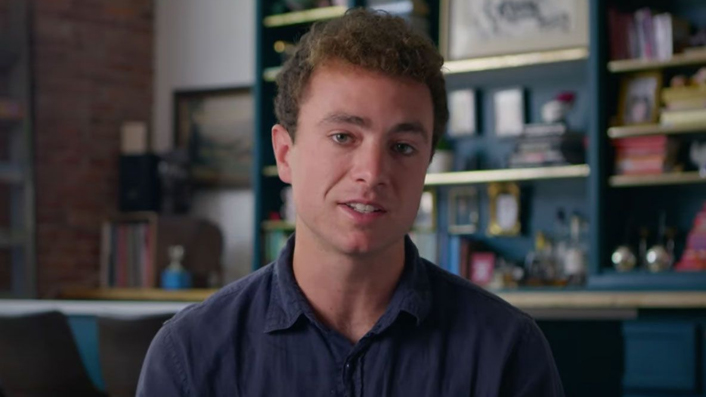
FLICKS: One of the things that really bolsters the film, apart from establishing this timeline and factual basis, are the compelling personal accounts that make it such a moving piece. What were some of the moments that affected you the most hearing people recount?
SUZANNE HILLINGER: I think for me, this moment in Max Kennedy’s interview when he talks about working as a volunteer for Jared Kushner’s PPE task force. Someone comes in and is impressed with how good a salesman Trump is, that he decided to make it seem like it was the states who were at fault for not being able to procure PPE for their people. And that was something that we had heard reported. But hearing it from a first person account that the president was making enemies of the state as if we are not in the same country, that he was intentionally bidding against the states to acquire PPE, it seems unpatriotic, and it’s very disturbing.
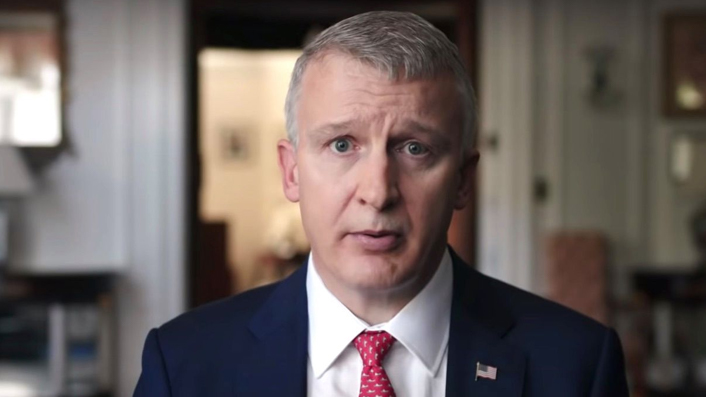
OPHELIA HARUTYUNYAN: To me, [immunologist and whistleblower] Rick Bright’s interview was very emotional. He did get quite emotional a couple of times during his interview. But I think listening to him just recap what he went through because he had to give up so much and he had to put himself out there to talk about these issues and how the government handled his case, it was quite emotional. We were very appreciative of him for doing the interview and telling his story. But, like he says in the film, it’s very hard to come forward in this administration. No government obviously appreciates whistleblowers. But specifically, this one has been very harsh because they actually can personally attack the person and put them on the spot for speaking out. So yeah, for me, I think just listening to his stories of knowing what needed to be done, really sounding the alarm, knowing that he could save lives that if he wasn’t being listened to, I think that was that was quite emotional.
ALEX GIBNEY: For me, I mean, I agree with what Ophelia and Suzanne have said in terms of those two interviews. But two, for slightly different reasons, stand out for me. One is the interview with Dr. Taison Bell. As he goes through his unit and realises that all the people on this hallway are Latino, all the people on this hallway are black, and that the people from his neighbourhood where he grew up are now all flooding hospitals because of the disparate impact. It really was personal in the eyes of a doctor, where you are acting both as a healthcare provider and as a human being.
The other one was a kind of moment of epiphany and odd poetry that Ophelia discovered when she was interviewing [infectious disease expert] Dr. Riedo. And that was when he says in the midst of this darkness and the hell he was going through, suddenly, he began listening to jazz. There was something so wonderfully human about that that he went someplace he never thought he would go as a result of the kind of hell that he was seeing every day. And there was something sort of magnificently inappropriately beautiful about that.
FLICKS: Cool, just put on the most complicated, possibly stressful music! But does your brain really need any more additional information at this time?
OPHELIA HARUTYUNYAN: Well, I think we’ve found different ways to cope with this pandemic. Obviously, everyone has their own thing. And for people who really firsthand see how the reality of this pandemic… I mean, knowing that these people see death every day and they still go on the next day and the next day and the next day, I think listening to him talk about that moment of just listening to jazz for the first time, where he actually also picked up reading poetry, it reminds you about the humanity of it. And just how we’re all how we’re all connected in this even though we’re so apart from each other, but we’re experiencing the same thing even though we’re in very different locations.
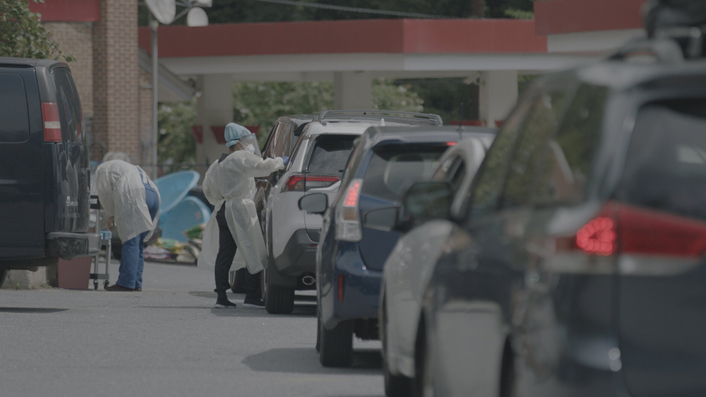
FLICKS: I’m curious about how you made this film together and how you dealt with what was already, as we see the film, a very complex process of getting cameras in front of interview subjects and being able to work safely. What was it like for you, together as a team, making this film?
ALEX GIBNEY: Well, the first thing I would say is we were together, and we were apart, which made it even more complicated because we were all in different places. I was in Maine. Suzanne and Ophelia were in New York. So that was difficult to begin. But I think we found that there was just so much to do. And once we had united around the central goal, which was “a story about the early days, going to be finished in time for the election, and we’ll do a comparison with South Korea,” we at least had a benchmark. And with that in mind, we were able to focus pretty effectively on just complementing each other’s skills.
SUZANNE HILLINGER: Yeah, I feel like it was this collective. We have a big team. It was a real team effort to get this film made, and I think there was this sort of collective drive that we knew it was going to be hard, that the pandemic was going to make it harder, that the fact that we wanted to get it out in October was going to be very difficult. I mean, what a better way to sort of throw yourself into the moment than make a film about it?
OPHELIA HARUTYUNYAN: And Alex, Suzanne, and I were never in the same room until we went into post-production and so that’s when we first were physically in the same room. There are people on the team that we haven’t met in person. It gives you a better idea.
ALEX GIBNEY: There’s always that phrase: film is a collaborative medium. Well, this was the true test, and it ended up working out pretty well.
FLICKS: What are your hopes for what happens with the film in the coming days and weeks?
OPHELIA HARUTYUNYAN: We hope that people will get to see it. I mean, we’re not hiding the fact that we were releasing the film before the election so that people have a chance to see it. If we’re making a very important decision, we just felt it was important that they know the truth because there are still some people who are under the impression that the government couldn’t have predicted this or prevented this, or we weren’t prepared. And we just hope that by showing the facts, we can educate the people before they make a very important decision.




